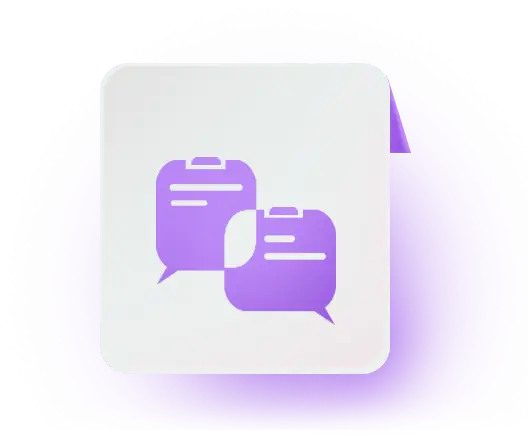- Written by Harshitha A
- Last Modified on 31-05-2023
Punjab Board Class 10 Exam 2024
The Punjab State Education Board (PSEB) was established in 1969 under the legislative act of the Punjab State Assembly to provide education in Punjab. However, in 1987, an amendment was made to change the previous act to give Punjab School Education Board self-governance (PSEB). The Punjab Board of Education is responsible for setting educational policies in the affiliated schools. A yearly state-wide secondary and senior secondary board examination is conducted by Punjab School Education Board (PSEB Board).
The Punjab School Education Board conducts the Class 10 board exams every year. PSEB Class 10 is one of the most important exams that play a vital role in every student’s life. Scoring good marks in PSEB exam class 10 is important for every student since it determines the career stream for further studies. So, students of Class 10 under the PSEB must be aware of the latest Class 10 syllabus, sample papers, new exam patterns, marking schemes, etc.

Punjab Board Class 10 Exam Summary 2024
PSEB Class 10 examination is divided into papers A and B. Students will have to appear for the exam of eight subjects which comprise six subjects from group A and two from group B. As per PSEB Class 10 syllabus. Students must pass all of Group A’s subjects. In group B, students need to appear for two subjects from which they can choose one subject as per their own choice.
All the subjects’ weightage is 100 marks each, out of which 80 marks are theory marks, and the rest 20 marks are for practical and internal assessments. However, Punjabi or Punjab History and culture are conducted in 2 parts – Paper A and B. Each of these papers weighs 75 marks in total, out of which 65 is for theory and 10 marks for practical and internal assessments.
Punjab Board Official Website
www.pseb.ac.in/about-pseb
Punjab Board Class 10 2024 Latest Updates
Latest Updates 2022-23
- PSEB Class 10 exams were conducted from March 21 to April 18, 2023.
PSEB Class 10 Registration 2024
PSEB typically begins the registration process for Class 10 in December. They must register within the specified time frame, or they will be fined in addition to the registration fees. The registration process is required for all students taking regular or private board exams. The exam registration fee was set at INR 800/-, with an additional INR 100/- for each practical subject and INR 350/- for each additional subject.
Steps to Register for PSEB Class 10 Exams
Below we have provided easy to follow steps to register for PSEB Class 10 exams:
- Step 1: Visit the pseb.ac.in an official website for online registration.
- Step 2: Select the click to apply from the ‘Latest news’ section.
- Step 3: Fill in the basic details such as name, mother’s name, father’s name, address, date of birth. Students are required to fill in the details carefully, as will be mentioned in further documents.
- Step 4: After filling in the details, students are required to pay the prescribed application fees.
- Step 5: Print the application form and reference number for future use.
PSEB Class 10 Registration Fees
Every student who registers for the PSEB Class 10 final exam is required to pay a registration fee. The registration fee for the 10th class board exam are listed below:
| Particulars |
Registration Fee |
| General fees |
Rs. 800/- |
| Per practical subject |
Rs. 100/- |
To avoid mistakes, all details must be carefully filled out under the supervision of school officials. The information will appear on your admit card and result mark sheet.
Address – The address must match your original and authentic id; if your address changes, notify the authorities so that it can be corrected.
Aadhaar number- Although this is optional, enter the number carefully and double-check it with your original copy.
Upload a scanned passport size photograph in jpeg format with a maximum file size of 150kb, as well as a scanned signature.
After accepting the terms and conditions and making the payment, you will be unable to change the information on the registration form. |
Rs. 350/- |
Punjab Board Class 10 Exam Pattern 2024
The PSEB Class 10 exam pattern provided here gives students a clear idea about the original question paper, which reduces their exam anxiety and makes them confident before the exam.
The PSEB Class 10 paper pattern is divided into four sections, namely:
- Section A consists of objective questions worth 1 mark each.
- Section B contains two-mark questions with very short types.
- Section C carries four marks each, which are of the short type.
- Section D is a long-answer question, each of which carries six marks.
Below is the scoring pattern for PSEB Class 10 exams:
| Subject |
Total Marks |
Theory |
Practical’s |
CCE |
Min Pass Marks |
| Punjabi -I |
75 |
70 |
– |
5 |
25 |
| Punjabi-II |
75 |
65 |
– |
10 |
25 |
| English |
100 |
90 |
– |
10 |
33 |
| Hindi |
100 |
90 |
– |
10 |
33 |
| Mathematics |
100 |
80 |
10 |
10 |
33 |
PSEB Class 10 Paper Pattern for Practical Exams
The distribution of marks will be as follows:
(i) Practical notebook/sessional work/visits/project work -10 Marks
(ii) Viva voice – 10 Marks
(iii) Actual performance – 40 Marks
(iv) Theory exam time duration is 3 hours.

Punjab Board Class 10 Practical Experiments List
The PSEB practical examination will be graded in three stages.
- You must provide a practical copy of your Practical/Experiments during the Practical Exam.
- Oral Examination/Viva
Students must attend the practical exam, fill out their roll number and other information correctly, and have the invigilator sign their practical admission card. The roll number for both the practical and main exams will be the same.
Punjab Board Class 10 Exam Syllabus 2024
PSEB Class 10 syllabus is one of the most important tools that help in knowing the course description. It gives a framework for both students and teachers. PSEB syllabus helps the students to develop efficient learning strategies and, also, to plan their studies accordingly. At the beginning of the session, students must thoroughly know the Punjab Board Class 10 syllabus. Below is the list of subjects of Class 10, including compulsory, elective, and vocational subjects:
| Compulsory Subjects |
Elective Subjects |
Pre-vocational Subjects |
NSQF |
| Punjabi/Punjabi history |
Urdu |
Computer Science (Pre-Vocational) |
Retail |
| English |
Sanskrit |
Electronic & Technology |
Automobile |
| Science |
Arabic |
Farm Machinery |
Healthcare |
| Social science |
French |
Knitting (Hand and Machine) |
Information Technology |
| Mathematics |
German |
Engineering Drawing and Duplicating |
Security |
| Computer Science (Grading Subject) |
Agriculture |
Food Preservation |
Beauty and Wellness |
| – |
Home Science |
Commercial Art |
Travel and Tourism |
| – |
Cutting and Tailoring |
Manufacturing of Sports Goods |
Physical Education and Sports |
| – |
Health Science |
Manufacturing of Leather Goods |
Agriculture |
| – |
Mechanical Drawing and Painting |
– |
– |
PSEB Class 10 Syllabus 2024: Highlights
A student must take exams for a total of eight subjects. Six subjects are to be chosen from group A and two from group B.
- According to the PSEB Class 10 guidelines, students must pass all group A subjects.
- In Group B, students must take two subjects, from which they can select one.
Group-A Subjects
- Punjabi (A and B) Or Punjab History and Culture (Part-A and B)
- English
- Hindi/Urdu (in lieu of Hindi)
- Mathematics
- Science
- Social Science
PSEB Class 10 Syllabus 2024: All Subjects
The detailed PSEB Class 10 syllabus for all subjects has been tabulated below for the students:
Punjab Board Class 10 Group-A Subjects:
| Subject |
Syllabus |
Books |
| Science |
Chemical reactions and equations
Acids, bases, and salts
Metals and non-metals
Carbon and its compounds
Periodic Classification of elements
Life processes
Control and coordination
How do organisms reproduce?
Heredity and evolution
Light reflection and refraction
The human eye and colourful world
Electricity
Magnetic effects of electric current
Sources of energy
Our environment
Sustainable management of natural resources |
Science textbook for Class 10 – Prescribed by PSEB |
| Mathematics |
Real numbers
Polynomials
Pair of linear equations in two variables
Quadratic equations
Arithmetic progressions
Triangles and circles
Coordinate geometry
Introduction to trigonometry
Some applications of trigonometry
Constructions
Areas related to a circle
Surface areas and volumes
Statistics
Probability |
Mathematics textbook for 10th Class – Prescribed by PSEB |
| Punjabi or Punjab History and Culture |
Punjabi is the 1st language and mother tongue of Punjab. So, it is mandatory for everyone.If the student is an outsider and doesn’t know the Punjabi language, they can opt for Punjab History and Culture. |
As prescribed by the PSEB board |
| English |
Reading Section
Writing Section
Literature
Grammar
Vocabulary |
English Main Course Book for Class-X, published by PSEB.
English Literature Book (Supplementary Reader) for Class-X, published by PSEB.
A Practice Book of English Grammar & Composition for Class X, Published by PSEB |
| Hindi |
Grammar
Comprehension
Reading
Writing Section |
Prescribed textbook by PSEB |
| Geography |
India -An introduction
Land
The climate
Natural vegetation, wildlife, and soils
Land utilisation and agriculture
Minerals and power resources
Population |
Social Studies textbook for Class 10 – Prescribed by PSEB |
| History |
Physical features of Punjab and their influence on its history
Political and social conditions of Punjab before Guru Nanak Dev Ji
Guru Nanak Dev Ji and his Teachings
Contribution of Sikh Guru’s from Guru Angad Dev Ji to Guru Tegh Bahadur Ji
Guru Gobind Singh Ji’s life, creation of Khalsa, and his personality
Banda Singh Bahadur and the Sikh Misals
Ranjit Singh: Early life, achievements and Anglo-Sikh relations
The Anglo Sikh wars and annexation of Punjab
Punjab’s contribution towards the struggle fordom. |
Social Studies textbook for Class 10 – Prescribed by PSEB |
| Economics |
Basic concepts
The infrastructure of the Indian economy
Agriculture development in India
Industrial development in India |
Social Studies textbook for Class 10 – Prescribed by PSEB |
| Political Science |
Features of the Indian constitution
The Central Government
The State Government
Indian Democracy at work
Indian foreign policy and United Nations |
Social Studies textbook for Class 10 – Prescribed by PSEB |
Group-B Subjects
- Computer Science
- Students can choose one subject from elective, pre-vocational or NSQF subjects from the list:
| Group B |
Subject Name |
| Elective Subjects |
Urdu Elective
Sanskrit
French
German
Agriculture
Home-Science
Cutting and Tailoring
Mechanical Drawing and Painting
Music (Vocal)
Music (Tabla)
Music (Instrumental)
Health and Physical Education |
| NSQF (National Skill Qualification Framework) Enabled |
Retail
Automobile
Health Care
Information Technology/Information Technology Enabled Services
Security
Beauty and Wellness
Travel and Tourism
Physical Education and Sports
Construction
Agriculture
Apparel |
| Pre-Vocational Subjects |
Computer Science
Repair & Maintenance of HHEA
Electronic and Technology
Repair & Maintenance of Farm Machinery
Knitting (Hand and Machine)
Engineering Drafting and Duplicating
Food Preservation
Manufacturing of Leather Goods |
Important Note:- The elective, pre-vocational and NSQF subjects will be assessed at the school level, while the Computer Science exam will be assessed by the board. Students can also choose one subject from the list of elective, pre-vocational, and NSQF subjects above.
How to Download PSEB Class 10 Syllabus 2024?
Follow the steps below to download the PSEB Class 10 syllabus from the official website:
- Step 1: Visit the PSEB official website pseb.ac.in.
- Step 2: Select the Syllabus option given under the section of important links.
- Step 3: It will take you to PSEB’s latest syllabus page.
- Step 4: Tap on the link to the Class 10 syllabus of PSEB.
- Step 5: The syllabus will be downloaded in the form pdf file.
- Step 6: Now, students can open and print it out.
Punjab Board Class 10 Practical Experiments List
The practical examination will be graded in three stages.
- You must provide a practical copy of your practical/experiments during the practical exam.
- Oral examination/Viva.
Students must attend the practical exam, fill out their roll number and other information correctly, and have the invigilator sign their practical admission card. The roll number for both the practical and main exams will be the same.
Punjab Board Class 10 Exam Blueprint 2024
Check the subject-wise PSEB Class 10th exam blueprint here:
Punjab Board Class 10 Exam Calendar 2024
The Class 10 Punjab board exams will be conducted from March to April 2024. Students can check the Punjab Board Class 10 exams date sheet 2024 from the below table:
| Exams Dates |
Subjects |
| March 2024 |
Punjab-A, Punjab History and Culture-A |
| March 2024 |
English |
| March 2024 |
Music (Gayan) |
| March 2024 |
Punjab-B, Punjab History and Culture-B |
| March 2024 |
Computer Science |
| April 2024 |
Mechanical Drawing & Painting |
| April 2024 |
Mathematics |
| April 2024 |
Science |
| April 2024 |
Agriculture |
| April 2024 |
Social Science |
| April 2024 |
Welcome Life |
| April 2024 |
Hindi / Urdu (Alternate Language) |
| April 2024 |
Home Science |
| April 2024 |
Health and Physical Education |
| April 2024 |
Music Tabla |
| April 2024 |
Physical Education |
| April 2024 |
Music Vadan |
| April 2024 |
Tailoring
Languages: Sanskrit/ Urdu/ French/ German
Pre-vocational: Computer Science (pre-vocational)/ Repair and Maintenance of Household Electrical Appliances/ Electronic Technology/ Repair and Maintenance of Agriculture Power Machines/ Knitting (Hand and machine)/ Engineering, Drafting & Duplicating/ Food Preservation/ Manufacturing of Leather Goods
NSQF subjects – Groceries/ Automobiles/ Healthcare/ Information Technology/ Security/ Health & Lifestyle/ Travel & Tourism/ Physical Education and Sports/ Agriculture / Apparel/ Construction/ Plumbing/ Power |
Punjab Board Class 10 Admit Card 2024
The Punjab School Education Board issues the PSEB Class 10 admit card 2024 nearly two weeks before the start of the exams. PSEB Class 10 admit card is available online at pseb.ac.in the Board’s official website. Before distributing PSEB Class 10 admit cards to students, all schools affiliated with the Board must download them and have them signed by the school principal.
Punjab Board Class 10 Study Plan to Maximize Score
Below we have provided some of the preparation tips that will help you ace the PSEB Class 10 exams:
- Get familiar with the Exam Pattern & Syllabus: Students should be aware of the PSEB Class 10 exam pattern. Among other things, PSEB Class 10 exam pattern includes information on questions, the number of questions, the duration of exam, marking scheme, and the sections covered. Always read the PSEB class 10th books to score better marks in the Punjab board exam. Please review the revised PSEB Class 10 syllabus before attempting to complete the course material on your own!
- Make a Study Schedule: It’s nearly impossible to reach your goal without proper planning. So, to effectively prepare for the 10th board exams, students must create a study schedule and adhere to it. Students’ self-confidence will keep rising if they create study schedules and stick to them. Check the study schedule and allocate more time for difficult subjects.
- Solve Previous Year Questions and Sample Papers: Students are advised to practice PSEB previous year question papers to assess their preparation level. Students must keep an eye on the clock because completing the sample question papers within time will help students to complete their exam on time.
- Take Breaks while Studying: It is difficult for the student to learn if he or she sits in one place and tries to focus. As a result, it is recommended that students take short breaks while studying. Getting 10-15 minutes of break in between will help you stay fit, active, and mentally prepared for future sciences.
- Group Study for PSEB Class 10 Exams: It is always fun to study with a group of friends. When it comes down to it, speaking and listening are always beneficial in the learning process. Studying in a group can help you grasp concepts more quickly. In addition, boring topics will be made interesting in a group study, allowing students to extend their study schedules for a longer period of time.
- Avoid using Jargon: Always keep in mind that spoken and written English are not the same thing. Using jargon or SMS language is considered a spelling error, and students will be penalised, resulting in a loss of marks.

Punjab Board Class 10 Previous Year Analysis
Around 3.16 lakh of the 3.23 lakh students who registered for the exam have passed it. The pass rate for this year is 97.94 percent. Below is the latest result analysis for the PSEB Class 10th exam:
| Year |
No. of Students Appeared |
Overall Pass Percentage |
Pass Percentage of Girls |
Pass Percentage of Boys |
| 2022 |
3,23,361 |
97.94 |
99.34 |
98.83 |
| 2021 |
3,21,384 |
99.93 |
NA |
NA |
| 2020 |
NA |
NA |
NA |
NA |
| 2019 |
3,68,295 |
59.47 |
69.13 |
52.31 |
| 2018 |
3,59,484 |
62.81 |
NA |
NA |
| 2017 |
3,30,437 |
63.97 |
63.97 |
52.35 |
| 2016 |
3,42,330 |
72.25 |
78.30 |
67.43 |
| 2015 |
3,79,099 |
65.77 |
73.08 |
60.19 |
| 2014 |
3,75,358 |
72.25 |
79.60 |
66.77 |
Punjab Board Class 10 Cut-off Score
It is mandatory to score a minimum of 33% marks in theory, practical (whereas applicable), and Internal Assessment/Project Work in aggregate to pass the examination with a minimum of 20% marks in theory and practical separately. No minimum marks are required in Internal Assessment/Project Work. But it is mandatory to get 33% marks in theory, practical and internal assessment in aggregate.
PSEB Class 10 Exam Results 2022-23
The PSEB Class 10 Term 2 result 2023 will be announced in June 2023. The Punjab School Examination Board published the exam results on its official website. Students can view their Punjab Board Class 10 results by entering their roll number. The PSEB 10th 2022-23 results will be declared once the exams are completed.
PSEB Class 10 Result 2022-23: Highlights
Below is the PSEB Class 10 2022-23 results date for students’ reference:
| Conducting Authority |
Punjab School Education Board |
| Mode of Result |
Online |
| Date of Exams |
Term 1 – December 13, 2022, to December 18, 2022
Term 2 – March 21 to April 18, 2023 |
| Date of Result Declaration |
To be Announced |
| Official Website |
pseb.ac.in |
PSEB 10th Class 2022-23 Result Declaration
The Punjab Board will declare the PSEB Class 10 Term 2 result in June 2023. Around 3,23,361 students appeared for the exam, out of which 3,16,699 students passed. The overall pass percentage this year is 97.94 per cent. In the PSEB Class 10 exam, girls surpassed the boys by scoring more than 99 per cent marks. Students can download their results after the exams by logging in to the official portal with their roll number or reference number.
Every year, PSEB conducts Class 10 board exams for all schools that are affiliated with it. The results of the Class 10 board exam will assist students in selecting the appropriate stream for higher secondary education. The results will also help them in the future when applying for jobs. The board allows students to recheck their grades if they are dissatisfied with their results. Students who are interested in applying for this position should do so after the end of December.
How to Check PSEB Class 10 Results?
The following are the general steps that students should take after the board declares the Punjab Board Class 10th results online:
- Step 1: Visit the Punjab board’s official website www.pseb.ac.in.
- Step 2: Click on the ‘Results option at the top of the home page.
- Step 3: Enter the required credentials asked and click on the ‘Submit’ button
- Step 4: Once you click the button, the results will appear on the screen
- Step 6: Download and save the result PDF and take a printout of the same for future reference.
PSEB Class 10 Result Via SMS
Students can also check the PSEB Class 10 result of Punjab Board 2023 via SMS. For that, they can follow the below-mentioned steps:
- Type PB10 and send to 5676750
- Example- PB10 10029876 send to 5676750
PSEB Class 10 Toppers’ List
In the academic session 2021-2022, girls outranked boys in the PSEB Class 10 exam performance. The PSEB Class 10 toppers list for the year 2022 is tabulated below:
| Rank |
Student Name |
District |
| 1st |
Nancy Rani |
Ferozepur |
| 2nd |
Dilpreet Kaur |
Sangrur |
| 3rd |
Komalpreet |
Sangrur |
Punjab Board Class 10 Supplementary Exams 2022-23
Punjab Board Class 10 supplementary exams are held for students who were unable to get through the exams. The exams are generally held between July and August (tentatively). Students can learn about the exam schedule by consulting the PSEB 10th date sheet. For supplementary exams, students would be required to study from the same syllabus as PSEB 10th syllabus.
PSEB Class 10 Rechecking/Revaluation Result 2022-23
Students who are dissatisfied with their PSEB Class 10 result may request rechecking or revaluation of their answer scripts. They can apply for it by visiting PSEB’s official website and downloading the revaluation form. Students must complete all fields, attach all required documents, pay the revaluation fee, and then submit their application to PSEB Board headquarters in Mohali.
FAQs on Punjab Board Class 10 Exams
Q.1: How many subjects can a student choose in PSEB Class 10?
Ans: Students have to select a total of eight subjects for their Punjab Board Class 10 exam. Six subjects are compulsory and must be chosen from Group A and two from Group B.
Q.2: When will the PSEB Class 10 2024 exam be held?
Ans: The PSEB Class 10 2024 exam will be held from March to April 18, 2024.
Q.3: If I have a total of 243 points, what is my final grade in Class 10?
Ans: D grade will be awarded to candidates with a 40% to 50% score (240 to 299 marks).
Q.4: What is the total score for PSEB Class 10?
Ans: 75 points are awarded for Punjab/Punjab History and Culture, and 100 points are awarded for other subjects.
Q.5: When were the Punjab Board Class 10 2024 Term 2 exams conducted?
Ans: The PSEB 10th Term 2 2024 exams will be conducted from March to April 2024.
List of Educational Institutions for Punjab Board Class 10
Future Exams After Punjab Board Class 10
Competitive exams are now at the heart of our educational system. Students and their parents are looking for vital information about competitive exams. Most students and parents believe that competitive exams are only held for Class 12 students, but this is not the case.
Even for students in Class 10, there are a variety of competitive exams, scholarships and olympiads. These competitive exams are held to assess a student’s mental ability and intelligence quotient and to award scholarships to those who pass. To enjoy the benefits, every student and his or her parents must be aware of such competitive exams, as awareness is the first step towards preparation.
- National Talent Search Examination or NTSE
It is a national level examination combined with a scholarship programme, and it is one of the most prestigious competitive exams for high school students. The sole purpose of NTSE is to identify students with exceptional academic talent and intellectual ability. It adheres to NCERT syllabus, which covers Science, Math, Social Science, and Mental Ability. Students who pass this two-tiered exam are awarded a cash scholarship for the entire academic year. The examination will include the Mental Ability Test (MAT) and the Scholastic Ability Test (SAT).
- National Level Science Talent Search Exam (NLSTSE)
NLSTSE is a diagnostic test that identifies gifted students in grades II through XII and assists them in improving their overall learning ability and educational performance. They include interesting questions that require thinking rather than simply recalling as in traditional techniques, breaking the trend of rote learning. NLSTSE provides detailed skill-based feedback, highlighting students’ strengths and weaknesses so that immediate action can be taken to correct the anomaly and pave the way for improvement.
Today, most students are interested in Science and Math, leaving them unaware of the world’s geographical facts. GeoGenius was created in order to foster an understanding of geography among school students. These exams are open to students in grades II through XII. This test is divided into two stages. During Phase I, children compete in their respective schools across the country, and then, based on a cut-off, students are chosen for Phase II, where they are invited to the National Finals.
- Assessment of Scholastic Skills Through Educational Testing (ASSET)
ASSET, designed for students in grades III-X, employs multiple-choice questions to assess how well students understand the skills and concepts underlying the school curriculum, thereby breaking the concept of rote learning. The exam is primarily based on the curriculum of the CBSE, ICSE, IGCSE, and major state boards.





















































